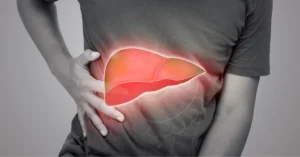
Fatty Liver Disease
Fatty liver disease, once a rare condition, has now become

The immediate post-operative care following a liver transplant is crucial for ensuring the success of the surgery and the patient’s long-term recovery. This phase begins immediately after the surgery and involves transferring the patient to the intensive care unit (ICU). The focus during this period is on stabilizing the patient and closely monitoring the newly transplanted liver. Key aspects of this phase include:
Proper care and meticulous monitoring during this critical period are essential for preventing complications and ensuring the new liver functions optimally, ultimately contributing to the high success rate of liver transplants in India.
After a liver transplant, medication management and immunosuppression become central to ensuring the liver transplant's success. Immunosuppressive drugs are essential in preventing the body from rejecting the new liver, but they require careful handling. Adhering to a strict medication regimen is crucial for transplant recipients to maintain their health and avoid complications. The following points highlight key aspects of medication management and its role in liver transplant recovery:
Effective medication management is key to improving the liver transplant success rate in India and ensuring long-term liver transplant recovery.
Nutritional support is a cornerstone of recovery after a liver transplant, playing a vital role in healing, immune function, and overall well-being. After a liver transplant, the body requires specific nutrients to help repair tissues, support the new liver, and prevent complications. A well-structured diet plan ensures that patients receive the necessary nutrients while avoiding foods that could harm their new liver. Here’s what a comprehensive nutritional plan should include:
This nutritional support and diet plan is tailored to enhance the liver transplant success rate in India, supporting recovery and promoting long-term health. Following these dietary guidelines closely can significantly improve liver transplant recovery and contribute to a healthier, more vibrant life post-transplant.
Physical rehabilitation and exercise play a crucial role in the recovery process after knee replacement surgery. Engaging in a structured physical therapy program not only aids in regaining strength and flexibility but also helps in reducing pain and improving overall function. Here’s how physical rehabilitation and exercise contribute to a successful recovery:
Psychosocial support and counseling play a crucial role in the comprehensive treatment plan for individuals undergoing significant medical procedures or managing chronic conditions. The integration of these services ensures that patients receive holistic care, addressing both their emotional and psychological needs alongside their physical health.
Psychosocial Support helps patients cope with the emotional stress and anxiety associated with their medical condition. This support involves understanding and managing the mental and emotional aspects of health, which can significantly impact recovery and quality of life. Effective psychosocial support includes:
Incorporating these elements into a patient's care plan can lead to improved adherence to treatment, better mental health outcomes, and an overall enhanced quality of life.
Effective long-term follow-up and health maintenance are crucial aspects of managing Complex and Advanced Angioplasty. Following the initial procedure, ongoing care helps ensure the long-term success of the treatment and reduces the risk of complications. Here’s a breakdown of key elements for maintaining optimal health:
The journey to recovery after a liver transplant is a multifaceted process that requires diligent post-surgical care, including medication management, proper nutrition, physical rehabilitation, psychosocial support, and regular follow-up. Each component plays a vital role in ensuring the success of the transplant and promoting long-term health. By adhering to these essential aspects of care, patients can significantly enhance their recovery, leading to a healthier, more fulfilling life post-transplant.
The surgical procedure of a liver transplant involves removing the diseased liver and replacing it with a healthy liver from a donor. The surgery can last several hours and requires careful coordination of medical teams.
Surgical management of a liver transplant includes preoperative assessments, surgical removal of the damaged liver, implantation of the donor liver, and postoperative care to monitor recovery and prevent complications like rejection or infection.
Risks include rejection of the new liver, infections due to immunosuppression, bleeding, bile duct complications, and other surgical complications. Long-term risks involve medication side effects and the need for lifelong follow-up.
Liver transplant recovery varies but typically takes about 3 to 6 months. Full recovery depends on the patient’s overall health, adherence to medication, and post-transplant care routines.
Success rates are influenced by factors such as the patient’s overall health, the quality of post-transplant care, medication adherence, and early detection of complications like rejection or infection.

Fatty liver disease, once a rare condition, has now become
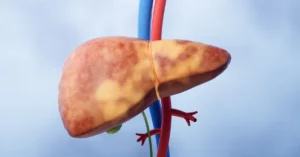
Cirrhosis of the liver is a serious medical condition that

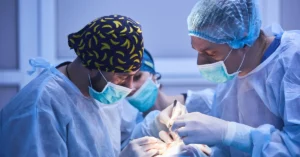

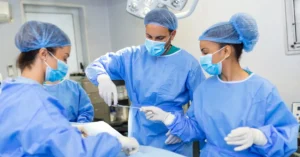
A liver transplant is a crucial and intricate surgical procedure
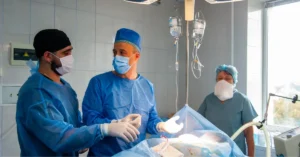
Embarking on a liver transplant journey in India is a

Liver transplants in India have become a crucial procedure for
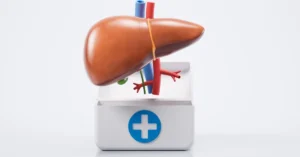
A Living Donor Liver Transplant is a groundbreaking procedure that provides hope to patients suffering from end-stage liver disease
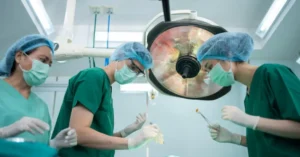
Understanding the types of liver transplant is crucial for patients with severe liver conditions like cirrhosis or liver failure.

A liver transplant is a crucial and intricate surgical procedure aimed at replacing a failing liver with a healthy one from a donor. This life-saving operation is often the last resort for individuals suffering from severe liver conditions such as cirrhosis, liver cancer, or acute liver failure.

Acute liver failure is a rapid loss of liver function, often occurring within days or weeks in individuals without pre-existing liver conditions. It can result from viral hepatitis, drug toxicity (especially acetaminophen overdose), autoimmune liver disease, or metabolic disorders. Symptoms include jaundice, confusion, and bleeding disorders, progressing quickly to life-threatening complications like brain swelling and multi-organ failure.